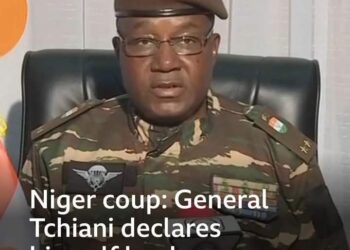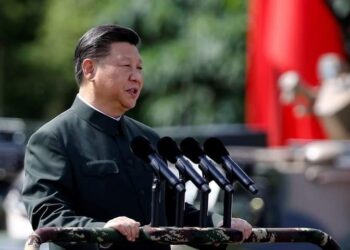I woke up in the early morning of July 26, 2023, with great trepidation in my hometown of Machina in Yobe state of Northeastern Nigeria neighbouring the Niger Republic to the North about the continued sub-regional insecurity and the instability when I heard the news that a group of soldiers led by Colonel Ibrahim Abubakar staged a coup overthrowing President Mohamed Bazoum, who had won the 2021 election in a disputed vote which was major setbacks to democracy in the region.
The coup was condemned by the international community, especially by the Economic Community of West African States (ECOWAS), which imposed sanctions and threatened to use force to restore constitutional order in Niger. However, some neighboring countries, such as Burkina Faso, Mali, and Guinea, expressed their solidarity with the coup leaders and warned against any foreign intervention.
The military intervention in Niger has increased the insecurity and instability in the region, where various armed groups are active, such as Boko Haram and Islamic State in West Africa in the north-east, bandit gangs in the north-west, farmer-herder conflict in the middle belt, and separatist movements in the south-east and south-west.
The military intervention in Niger has also affected Nigeria’s democracy, which is already fragile and facing multiple challenges. Nigeria is a complex country with more than 200 ethnic groups and a history of civil war and military rule. I will analyze how the Niger crisis has impacted Nigeria’s security, economy, and politics, and what implications it has for the future of democracy in West Africa.
One of the most immediate impacts of the Niger crisis on Nigeria is the increased security threat posed by militant groups operating in Niger. Nigeria shares a long border with Niger and has been a target of cross-border attacks by these groups. The coup in Niger may embolden these groups and create more violence and instability in Nigeria’s northern states.
Another impact of the Niger crisis on Nigeria is the reduced economic cooperation between the two countries. Nigeria and Niger have strong economic ties, especially in the oil sector. Nigeria is Niger’s largest trading partner and provides electricity to some parts of Niger. The coup in Niger may disrupt these relations and affect Nigeria’s oil exports and energy supply.
A third impact of the Niger crisis on Nigeria is the divided political alliances within ECOWAS. Nigeria and Niger belong to the same regional bloc, which aims to promote democracy and integration in West Africa. However, the coup in Niger has exposed divisions and disagreements among ECOWAS members, some of whom support the coup leaders and others who oppose them. This may weaken ECOWAS’s credibility and influence in the region and undermine Nigeria’s leadership role. For example, on August 5, 2023, ECOWAS held an emergency summit in Abuja to discuss the situation in Niger.
However, the summit ended without a consensus on how to deal with the coup leaders. Some countries, such as Burkina Faso, Mali, and Guinea, argued that ECOWAS should respect Niger’s sovereignty and dialogue with the coup leaders. Other countries, such as Ghana, Senegal, and Benin, insisted that ECOWAS should impose more sanctions and pressure on the coup leaders to restore democracy. Nigeria, as the host and the largest member of ECOWAS, tried to mediate between the two sides but failed to achieve a breakthrough.
I think the military intervention in Niger has had significant impacts on Nigeria’s security, economy, and politics. It has increased the insecurity and instability in the region, reduced the economic cooperation between the two countries, and divided the political alliances within ECOWAS. These impacts have challenged Nigeria’s democracy, which is already fragile and facing multiple challenges. Therefore, Nigeria should take proactive steps to address these impacts and protect its democracy.
Some of these steps are: strengthening its security forces and enhancing its coordination with regional and international partners; diversifying its economy and reducing its dependence on oil, and engaging in constructive dialogue with Niger and other ECOWAS members to find a peaceful and democratic solution to the crisis.
Baba Abdullahi Machina writes from Machina, Yobe state




